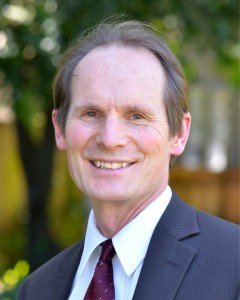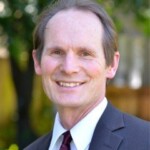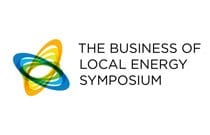Jeff Byron and Jigar Shah
Hear Jeff and Jigar speak at The Business of Local Energy Symposium on Oct 23rd>
Converting to solar energy has gotten much easier with the advent of “no money down” financing solutions. However, for every customer that meets the credit score and has a good south facing/flat roof, there are many others that are not as well positioned. This presents a challenge to transitioning from fossil fuel to renewable energy and an enormous business opportunity. Enter Community Choice Energy. Community Choice promises to open up these opportunities while also modernizing and decentralizing the electricity system without all the hassle of creating a full municipal utility company. Sunnyvale and other South Bay cities are now taking a hard look at Community Choice because it is the most cost-effective, powerful tool under local control to reduce greenhouse gas emissions.
Community Choice is a local program that buys and generates electricity for businesses and residents. An investor-owned utility like PG&E continues to provide customer service, maintain power lines, transmit power, and handle the billing. The Community Choice program has the legal right to procure or develop new electricity generation on behalf of its members. Although this public agency sets rates and decides on the power mix and other policies, they hire a private electric service provider to do the actual procurement or development of local energy.
An investor-owned utility like PG&E continues to provide customer service, maintain power lines, transmit power, and handle the billing. The Community Choice program has the legal right to procure or develop new electricity generation on behalf of its members. Although this public agency sets rates and decides on the power mix and other policies, they hire a private electric service provider to do the actual procurement or development of local energy.
Two Community Choice programs currently operate successfully in California, in Marin and Sonoma Counties. Both offer cleaner power and lower rates than PG&E. Sonoma Clean Power estimates that this year alone more than $6 million will stay in the local economy because of their locally controlled community power company.
Investing in local clean energy will make the energy system more resilient over time and will keep costs stable by reducing dependence on the volatile market for fossil fuels. Locally produced energy also reduces the considerable expense of adding new transmission lines by producing more power closer to where it is consumed.
With Community Choice Energy, some communities could jump to micro grids where electricity is both consumed and produced on the premises. Community Choice is really best positioned to accelerate the deployment of proven technologies that are underutilized like the intelligent grid in California. To do so they will need political savvy and private partners with expertise, technologies, and financing to help them interface with large private utilities to integrate renewable energy into the system.
A group called Business for Clean Energy views Community Choice programs as game-changing innovation platforms for developing local energy, stimulating local economic development, and increasing the resiliency of the grid. This group is hosting a Business of Local Energy symposium for cleantech entrepreneurs, operators of Sonoma Clean Power and MCE Clean Energy, researchers, regulators and policymakers throughout the state. Companies from Silicon Valley like Cisco, SolarCity, Siemens, Tesla, and Green Charge Network will participate in the discussion whose focus is increasing local renewable power generation while keeping rates competitive.
At the symposium leading experts will describe innovative programs for residential and commercial clean power customers available right now, and programs planned for the near future.
The cities and businesses of Silicon Valley will benefit from this discussion. Silicon Valley has the human and capital resources, and experience in bringing start up ventures to scale necessary to unleash the potential of Community Choice. Put another way, Silicon Valley could put Community Choice Energy on steroids.
The Business of Local Energy symposium will be held October 23 in Petaluma. Learn more and register at: www.localenergybiz.com.
Jeff Byron is Co-Chair, Cleantech Open National Board, a former California Energy Commissioner and former Energy Director at Oracle. Jigar Shah is a Clean Energy Entrprenuer, Carbon War Room SCEO, founder of Sun Edison and author of Creating Climate Wealth: Unlocking the Impact Economy.


